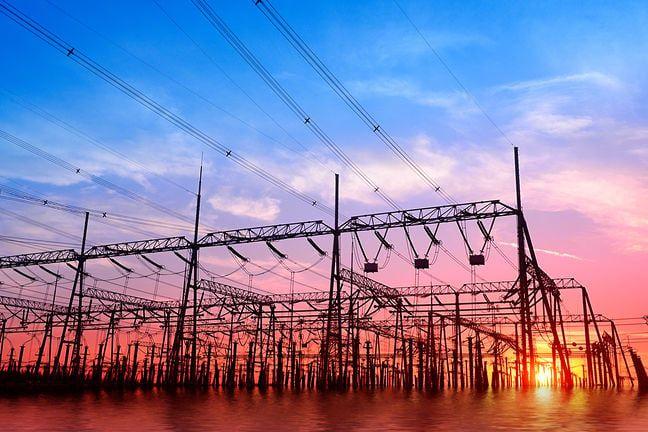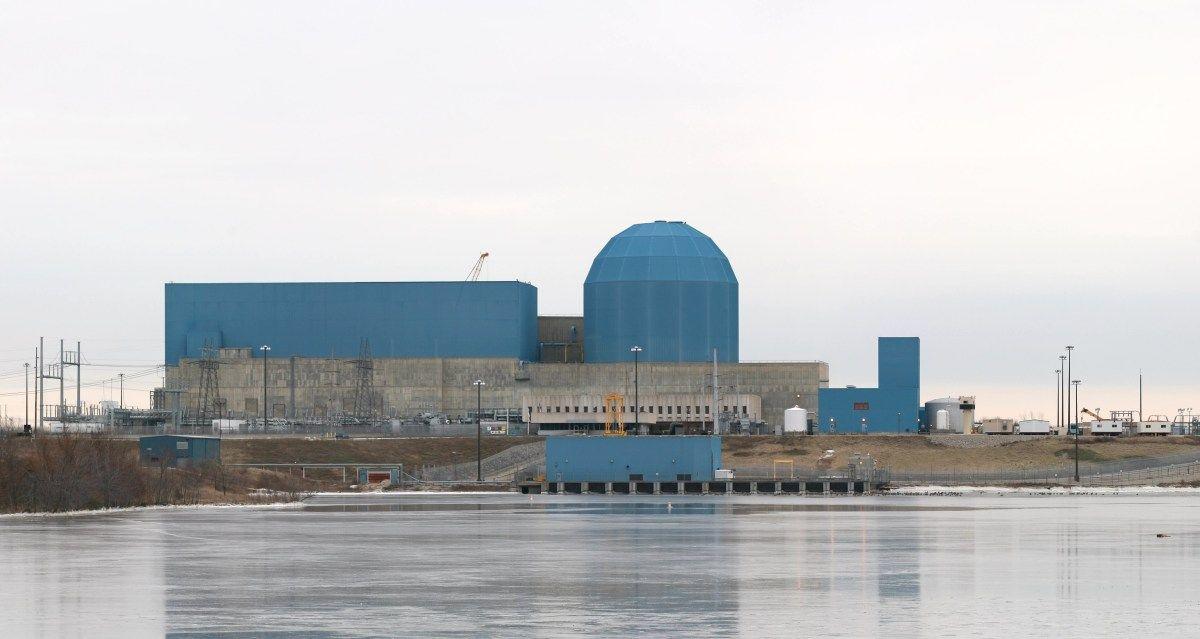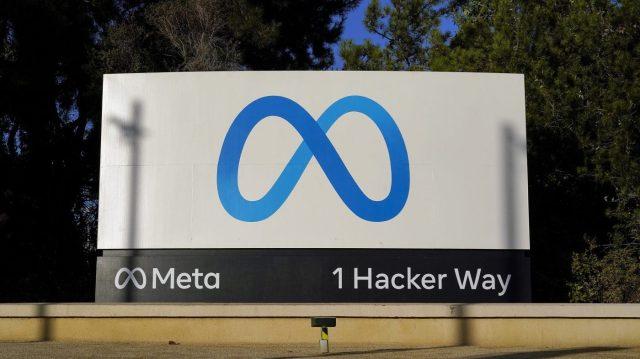Meta Ventures into Power Trading as AI Drives Electricity Demand
2 Sources
2 Sources
[1]
Zuck has the power! Meta applies to sell excess electricity
With new electricity sources for AI datacenters, the company will have some juice left over AI model training and serving require vast quantities of power, but not necessarily all at once. With the first of several gigawatt-scale datacenters due to come online next year, Meta is looking at ways to offload excess energy capacity by selling it on the wholesale market. This week, Atem Energy LLC, a subsidiary of Zuckercorp, filed an application with the Federal Energy Regulatory Commission requesting permission to sell energy, capacity, and other ancillary services at market-based rates. Access to adequate power has become a major bottleneck for AI infrastructure providers, many of which have been forced to commission large natural gas generator plants or even help reignite dormant nuclear reactors to support their datacenter buildouts. According to the filing, Meta's Atem division hopes to begin selling excess capacity as soon as November 16. In theory, Atem should allow Meta to lock in large power commitments under favorable terms and then resell any excess capacity it doesn't need or can't yet fully utilize, allowing it to get ahead of the company's datacenter power demands. Meta's power demands, we'll note, are substantial. Back in July, Zuck revealed plans to build several multi-gigawatt datacenters with the first, dubbed Prometheus, slated to come online in 2026. "We're building multiple more titan clusters as well. Just one of these covers a significant part of the footprint of Manhattan," Zuckerberg touted in a July Facebook post. Meta's Hyperion datacenter campus, located in Richland Parish, Louisiana, meanwhile, is expected to scale up to five gigawatts of capacity over the next few years. To power it, Meta has already commissioned Entergy to build three combined-cycle combustion turbine plants totaling 2.26 gigawatts of capacity. In addition to gas, it also issued a request for proposals to supply the company's datacenters with between 1-4 gigawatts of nuclear energy by early 2030s. And it's not just Meta either. Earlier this year, investment bank Goldman Sachs predicted global datacenter power demand would more than double from about 55 gigawatts by the end of the decade, with AI being the main driver. ®
[2]
Meta gets into power trading as AI sends demand soaring
Meta is planning to enter the power-trading sector. The company filed an application with US regulators. This move aims to manage the electricity needs of its data centres. Meta seeks to power its operations with clean energy. The demand for electricity is increasing due to AI development. Meta also aims to sell excess power to wholesale markets. Meta Platforms is pushing to break into the wholesale power-trading business so it can better manage the massive electricity needs of its data centres. The company, which owns Facebook, filed an application with US regulators this week seeking authorisation for the move. A Meta representative said it was a natural next step to participate in energy markets as it looks to power its operations with clean energy. Buying electricity has become an increasingly urgent challenge for technology companies including Meta, Microsoft and Alphabet's Google. They're all racing to develop more advanced artificial intelligence systems and tools that are notoriously resource-intensive. While they consume huge amounts of electricity, big tech companies also have contracts for power that they can flip around and sell when prices are high. "There will be opportunities to sell electricity into the wholesale markets and make a little extra money doing that," said Pavel Molchanov, an analyst at Raymond James. Plus, tech companies that have batteries or on-site generators at data centres can sell power from those back to the grid when prices spike, said Andy DeVries, a utilities and power analyst at CreditSights Inc. Power demand from data centres used to build and run AI models is set to quadruple in 10 years, based on projections from BloombergNEF. While many big tech companies have goals to power their operations with wind and solar, the massive demands of AI are prompting them to turn increasingly to natural gas-fired plants that run around the clock. Last month Louisiana regulators approved Entergy Corp's plan to build three natural gas plants to power Meta's biggest data centre. Meta applied to the Federal Energy Regulatory Commission through a subsidiary, Atem Energy, formed to act as a power marketer. The company asked for its application to be approved by Nov 16.
Share
Share
Copy Link
Meta, Facebook's parent company, is entering the wholesale power-trading business to manage the increasing electricity needs of its AI-driven data centers. The move highlights the growing energy demands of AI development and tech giants' strategies to balance power consumption and sustainability.

Meta's Power Play: From Consumer to Trader
Meta, the parent company of Facebook, is making a bold move into the wholesale power-trading business, reflecting the escalating energy demands driven by artificial intelligence (AI) development. This week, Meta's subsidiary, Atem Energy LLC, filed an application with the Federal Energy Regulatory Commission, seeking permission to sell energy, capacity, and ancillary services at market-based rates
1
2
.The Power Behind AI
The driving force behind this strategic shift is the voracious appetite for electricity in AI model training and serving. Meta's power demands are substantial, with plans to construct several multi-gigawatt data centers. The first of these, dubbed 'Prometheus,' is scheduled to come online in 2026
1
.Mark Zuckerberg, Meta's CEO, emphasized the scale of these projects in a July Facebook post, stating, "We're building multiple more titan clusters as well. Just one of these covers a significant part of the footprint of Manhattan"
1
.Balancing Act: Power Consumption and Sustainability
While Meta and other tech giants aim to power their operations with clean energy, the massive demands of AI are forcing them to explore alternative options. Meta's Hyperion datacenter campus in Louisiana is expected to scale up to five gigawatts of capacity over the next few years. To meet this demand, the company has commissioned Entergy to build three combined-cycle combustion turbine plants, totaling 2.26 gigawatts of capacity
1
.The Bigger Picture: Industry-wide Trend
Meta's move is part of a broader trend in the tech industry. Goldman Sachs predicts that global datacenter power demand will more than double from about 55 gigawatts by the end of the decade, with AI being the main driver
1
. Other tech giants like Microsoft and Google are also grappling with similar challenges.Related Stories
Strategic Benefits of Power Trading
By entering the power-trading sector, Meta aims to better manage its electricity needs and potentially profit from excess capacity. Pavel Molchanov, an analyst at Raymond James, notes, "There will be opportunities to sell electricity into the wholesale markets and make a little extra money doing that"
2
.Looking Ahead: The Future of AI and Energy
As AI continues to evolve, its energy requirements are expected to soar. BloombergNEF projects that power demand from data centers used to build and run AI models will quadruple in 10 years
2
. This trend underscores the need for innovative solutions in power management and sustainable energy sources to support the burgeoning AI industry.References
Summarized by
Navi
[1]
Related Stories
Meta launches Meta Compute initiative to build gigawatt-scale AI infrastructure this decade
12 Jan 2026•Technology

Meta Secures 20-Year Nuclear Power Deal to Fuel AI Ambitions
03 Jun 2025•Business and Economy

Tech Giants Turn to Nuclear and Renewable Energy to Power AI Ambitions
04 Dec 2024•Business and Economy

Recent Highlights
1
Google Gemini 3.1 Pro doubles reasoning score, beats rivals in key AI benchmarks
Technology

2
ByteDance's Seedance 2.0 AI video generator triggers copyright infringement battle with Hollywood
Policy and Regulation

3
ChatGPT cracks decades-old gluon amplitude puzzle, marking AI's first major theoretical physics win
Science and Research





